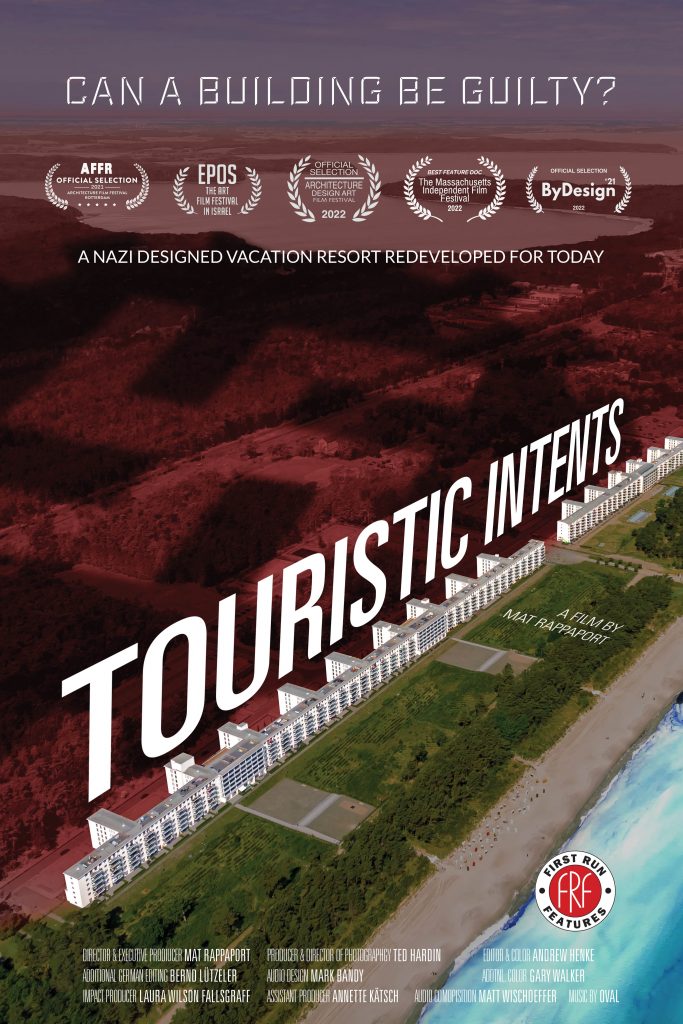AUDIENCE festivals, streaming, education
Pitch Deck (Short)
Pitch Deck (Long)
STATEMENT
“The film’s gradual revelation of the building’s psycho-political past (and present) is a real-life examination of horror genre’s most popular premise: the haunted house.”
– Anu Thapa – Film Theorist, Virginia Tech
“Touristic Intents” is a feature documentary film directed by Mat Rappaport that explores the intricate relationship between mass tourism and political ideology. Rappaport, an artist, filmmaker, and educator, is known for his works that delve into the built environment, habitation, and invisible infrastructures through video, photography, and initiatives such as the Range Mobile Lab, Video in the Built Environment (v1b3), and Side/Lot.
The film focuses on the captivating case study of Prora, an imposing and never completed Nazi resort located on Germany’s Baltic Sea. Originally designed to accommodate 20,000 vacationing working-class Germans, this colossal 3-mile-long structure served to solidify support for the Nazi party while promising leisure time to the masses. Despite the interruption caused by World War II, the construction of Prora resumed in the 1950s under the Socialist East German government. The site found new purposes as it transformed into a military training facility and housing for conscientious objectors coerced into construction work by the German Democratic Republic. After years of neglect, the massive structure was sold off in sections and is undergoing redevelopment, including Europe’s largest youth hostel, apartments, condominiums, and hotels.
In an era where the significance of national monuments has become a paramount issue in preserving cultural memory, “Touristic Intents” grapples with notions of place and identity. Prora stands as a striking testament to how buildings become vessels for political ideology and myth-making. The film provocatively raises questions about the ethical obligation to remember a building’s dark past. The Nazi-developed resort served as a potent propaganda instrument and was part of the “Strength Through Joy” initiative, including cultural activities and one-class cruise ships. Prora aimed to forge a connection between the working-class vacationers and the Nazi party, although its intended purpose was never fully realized. Subsequently repurposed by the East German government, the building became a significant site for military training and the housing of conscientious objectors.
“Touristic Intents” skillfully traces Prora’s complex history over multiple regimes, exploring its varied uses and highlighting the contrasting and interconnected aspects of the Nazi, East German, and contemporary political identities while connecting the critical influence of American industrialist Henry Ford on Nazi ideology and the building economy. The film seamlessly weaves contemporary interviews and observational footage with archival and propaganda materials dating back to the height of the Nazi movement. Interviews with individuals ranging from former conscientious objectors and historians to modern-day developers, architects, and designers provide diverse and multivalent perspectives.
Grappling with notions of place and identity in an era when the role of national monuments has become a defining issue for the selective maintenance of cultural memory, the resort of Prora stands as a lasting reminder of how buildings become vehicles for political ideology and myth-making throughout their lives. Is there an obligation to remember a building’s dark past?
Poster
